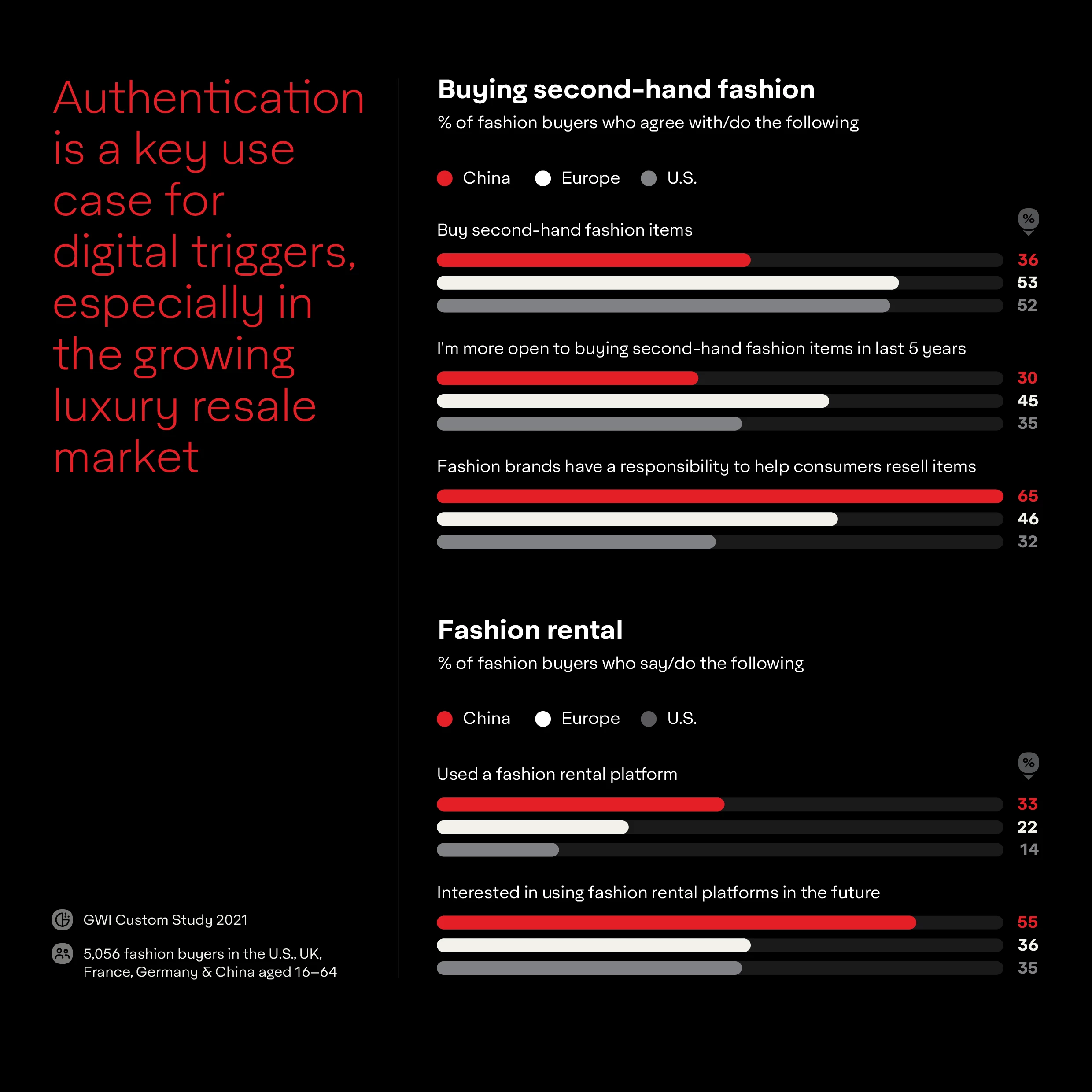
Partner Article
Report reveals fashion shoppers crave greener options
Materials science leader Avery Dennison publishes research uncovering a huge appetite for fashion circularity if retailers can provide the necessary tools
- Over 60% of fashion consumers think brands and retailers should be making end-of-life options like resale and recycling accessible for their products.
- Over half of shoppers (60%) want more transparency about the production journey their clothes have been on, so they can make ethical purchasing decisions.
- 43% of those who haven’t repaired their clothes before want to do so in the future.
GLENDALE, Calif. – December 13, 2021, Avery Dennison Corporation (NYSE: AVY) today confirms fashion shoppers’ interest in garment sustainability, having analyzed data from its latest ‘Digital Consumer Behavior’ report, produced in partnership with audience insight company GWI.
The study into a wide range of attitudes and behaviors of over 5,000 fashion buyers across five countries (U.S., UK, France, Germany, and China), revealed a deep desire for a greener way to shop. Consumers want retailers to provide more traceability, and information that will support responsible production and fashion circularity.
Transparency and connectivity
This indicates that brands need to find frictionless ways to provide consumers with relevant information. One example is putting digital labels on clothing. By scanning a QR code on the garment label and accessing information on an app, consumers can explore the lifecycle of the item of clothing to date, and find out how to recycle it. Retailers with convenient ways to communicate through smart labels will be in a strong position to drive brand loyalty, while actively supporting fashion circularity.
More than 40% of consumers surveyed in the U.S., more than 50% in Europe, and almost 70% in China say they want access to more information about how their clothes were made, to better inform their shopping decisions.
Circularity, recycling, repair
Sustainability has been pushed to the forefront of consumers’ minds when purchasing in recent years, as climate degradation becomes more serious and issues around ethical labor have come to light. Fashion buyers, especially, have high expectations from brands in driving sustainability forward, and are demanding increased transparency detailing how their products are manufactured and shipped.
They also recognize their own responsibility. Across the global markets surveyed, 62% of people said they want brands and retailers to make end-of-life options accessible for their products, with 58% saying fashion brands should help consumers repair items, and 57% saying brands should help consumers resell items when they no longer want to keep them. 43% of those who haven’t repaired their clothes before want to do so in the future.
The Secondary Market
Secondary fashion marketplaces and rental platforms are booming, and the implementation of smart labels and digital ID technologies can further invigorate them, directly benefiting consumers. QR codes provide consumers with all the information they need to allow for verified secondary market purchases.
Overall, more than half of fashion buyers in Europe and the U.S. say they purchase second-hand clothes. There are strong age-based patterns here too – the younger a person is, the more likely they are to be purchasing pre-loved fashion goods.
Where counterfeit goods are a prominent issue, fashion buyers are requesting proof of garment authentication. While a third of those who purchase second-hand fashion goods say they would use digital triggers to validate the authenticity of a garment, nearly all expect what they purchase to be authentic. This suggests the onus is on the reseller, who needs physical and digital tools to quickly confirm that a branded item is genuine.
End-to-end data solutions represent a viable tool to help facilitate recycling and resale models smoothly. They amplify value and visibility for products throughout each stage of the supply chain.
Commenting on this report, Debbie Shakespeare, director, sustainability, compliance, and core product line, Avery Dennison said, “There’s no doubt that item-level digital ID technology will bring more value to consumers, retailers and brands, allowing them all to adopt powerful new behaviours to support circularity. Scaling up circularity in fashion won’t just benefit the environment and reduce waste, it will also offer another touchpoint for consumers to get deeper product stories and better engage with brands. The opportunities are endless.”
This was posted in Bdaily's Members' News section by Meg Duncombe .








 Raising the bar to boost North East growth
Raising the bar to boost North East growth
 Navigating the messy middle of business growth
Navigating the messy middle of business growth
 We must make it easier to hire young people
We must make it easier to hire young people
 Why community-based care is key to NHS' future
Why community-based care is key to NHS' future
 Culture, confidence and creativity in the North East
Culture, confidence and creativity in the North East
 Putting in the groundwork to boost skills
Putting in the groundwork to boost skills
 £100,000 milestone drives forward STEM work
£100,000 milestone drives forward STEM work
 Restoring confidence for the economic road ahead
Restoring confidence for the economic road ahead
 Ready to scale? Buy-and-build offers opportunity
Ready to scale? Buy-and-build offers opportunity
 When will our regional economy grow?
When will our regional economy grow?
 Creating a thriving North East construction sector
Creating a thriving North East construction sector
 Why investors are still backing the North East
Why investors are still backing the North East